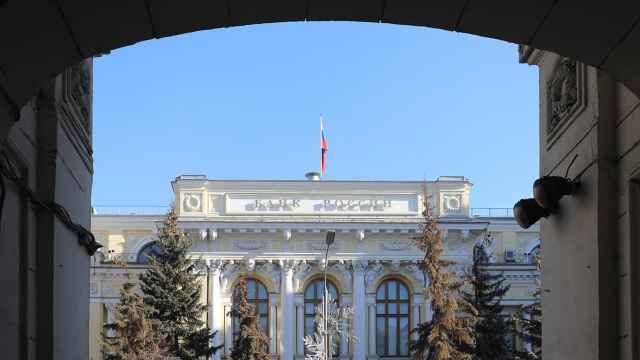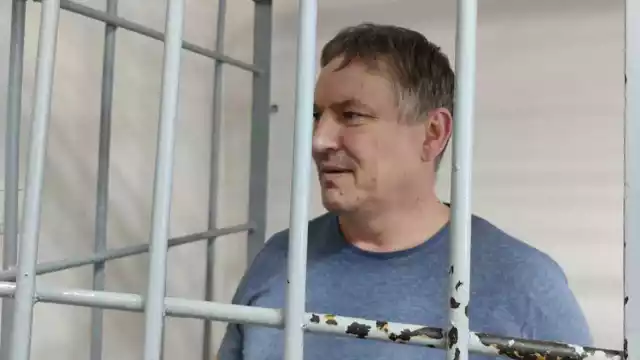The Agriculture Ministry said Friday that it would import some 3 million tons of feed grain, while an industry lobby warned that the situation in the once-major exporter could be exacerbated by a shortage of fertilizer and equipment to sow spring crops.
Russia is in talks with Ukraine, Kazakhstan and the European Union on feed grain imports, an Agriculture Ministry spokesman told Reuters.
The drought this summer slashed the grain harvest by 38 percent from last year's level to just 60.3 million tons, forcing the country that had been the world's third-largest wheat exporter to look abroad to meet domestic needs.
Moscow plans to buy about 2 million tons of grain in Ukraine, about 0.5 million tons in Kazakhstan and another 0.5 million elsewhere, most likely in the European Union, the spokesman said, adding that shipments of the grain may start next year.
The deficit of feed grain in Russia is about 5 million tons, but the share of fourth-grade wheat in the 2010 grain crop has risen, and part of it may be used for feed purposes, the spokesman said.
The government has been counting on increasing the area sown with spring grain to compensate for a loss of winter crop area caused by the drought.
But such plans could be overly optimistic, Russian Grain Union lobby group president Arkady Zlochevsky said Friday.
"There may be no increase in the [spring] sowing," Zlochevsky told an agricultural conference. "Taking into account that we have less fertilizer than a year ago and we have stopped buying new machinery … this will inevitably affect next year's crop."
Andrei Sizov Sr., president and chief executive of SovEcon agricultural analysts, told Reuters Insider television that next year's grain crop was likely to come in at 80 million tons, which is below average but probably enough for Russia to be self-sufficient.
He forecast that domestic prices would surge in January. "This will stimulate imports … from neighboring countries, mainly Ukraine and to some extent Kazakhstan," he said.
Given the high prices for feed grain, Russia may need less of it than previously. Zlochevsky said farmers had begun a mass slaughter of domestic animals.
He estimated that Russia's demand for grain would fall to 70 million tons this year from the State Statistics Service’s downwardly revised estimate of 72 million in 2009.
Zlochevsky said farmers should have a profit margin of 40 percent to keep the crop volumes unchanged. "If it is above 40 percent, output rises. If it is below, it falls," he said, adding that this year the average profit margin was below 40 percent.
The south of Russia has a surplus of 14 million tons of grain and Siberia 6 million, while regions along the Volga, in the center and the northwest of Russia have a deficit of 18-19 million tons after the drought, Zlochevsky said.
"We should understand that it is technically impossible to ship the surplus from the south until the end of the season," he said. "Physically, 5 or even 6 million tons of southern grain will not be shipped out."
He added that outbreaks of highly contagious African Swine Fever disease in southern Russia posed another obstacle to shipments. Equipment to disinfect grain there was scarce.
"This means that the regions hit by the drought will soon eat their grain up," he said. "The situation is such that even the government intervention stocks, despite being huge, may prove to be insufficient to cover the acute demand."
Zlochevsky said the government should act fast if it wants to implement its grain plans.
He proposed setting floating export tariffs on fertilizers to guarantee the necessary volumes for domestic consumption, curbing prices of oil and lubricants and changing the intervention purchases scheme.
"The government should guarantee minimum prices based on production costs like in Europe and in the United States, where the state guarantees it will buy any quantity of grain at these minimal prices," he said. "This will stimulate investments and [bring in] technologies."
A Message from The Moscow Times:
Dear readers,
We are facing unprecedented challenges. Russia's Prosecutor General's Office has designated The Moscow Times as an "undesirable" organization, criminalizing our work and putting our staff at risk of prosecution. This follows our earlier unjust labeling as a "foreign agent."
These actions are direct attempts to silence independent journalism in Russia. The authorities claim our work "discredits the decisions of the Russian leadership." We see things differently: we strive to provide accurate, unbiased reporting on Russia.
We, the journalists of The Moscow Times, refuse to be silenced. But to continue our work, we need your help.
Your support, no matter how small, makes a world of difference. If you can, please support us monthly starting from just $2. It's quick to set up, and every contribution makes a significant impact.
By supporting The Moscow Times, you're defending open, independent journalism in the face of repression. Thank you for standing with us.
Remind me later.





